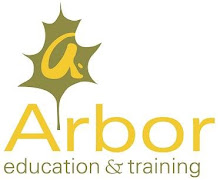References available on request. You see the phrase at the end of many sample resumes, and decide to include it on your resume. But it's important to know whom to include on your reference list, what information you need to provide to your references, what information to provide about your references, and how to use your references in your job search.
Make Your Reference List Purposeful
References are individuals who can attest to your qualifications for a particular position. They can discuss your skills and attributes. It's a good sign if an employer asks for your references it means you are still in the running for the job. Your references can confirm your abilities, so it's important to select people who can provide the information the recruiter will seek.
When selecting references, consider two questions:
Does this person know you professionally and know you well?Your relationship with the person is more important than the person�s name or job title. For example, if you have interacted with the president of your university a few times, but meet with the adviser to your student group weekly, the adviser is the better choice for your reference. He or she can discuss your skills using more specific examples. Avoid using personal references whenever possible. Mom, dad, or your neighbors may know you well, but can they address your skills, rather than your personality? While personality is important, the recruiter is also focusing on your skills and abilities!
Will this person give you a positive recommendation? Make sure the person you are considering as a reference will be a good one. If you do not have strong professional relationships with people, start developing them. A reference who can't say much about you can hurt your chances as much as one who would offer negative comments.
Consider asking supervisors from internships, full- or part-time jobs, or volunteer work; professors; academic advisers; or student group advisers to serve as your references. (And make sure you ask before you give someone's name and contact information as a reference!)
How to Help Your References Help You!
Here's how you can help your references provide positive insight about you to an employer:
Inform your references of your career plans and the types of positions for which you are applying.
Provide each of your references with a copy of your resume. It provides a good picture of who you are and what you have accomplished. It also gives your reference talking points when speaking about you or writing a reference letter.
Contact your references after you have interviewed with an employer who asks for your reference list. Give the reference the company name and the position you have applied for, and the duties and responsibilities of the job. That will help your reference prepare for contact.
Keep your references informed of your job-search progress. Notify them when you�ve accepted a position and write a thank-you note for their assistance.
Stay in touch with references. You may need to call on them again.
Tuesday, June 17, 2008
Subscribe to:
Post Comments (Atom)





No comments:
Post a Comment